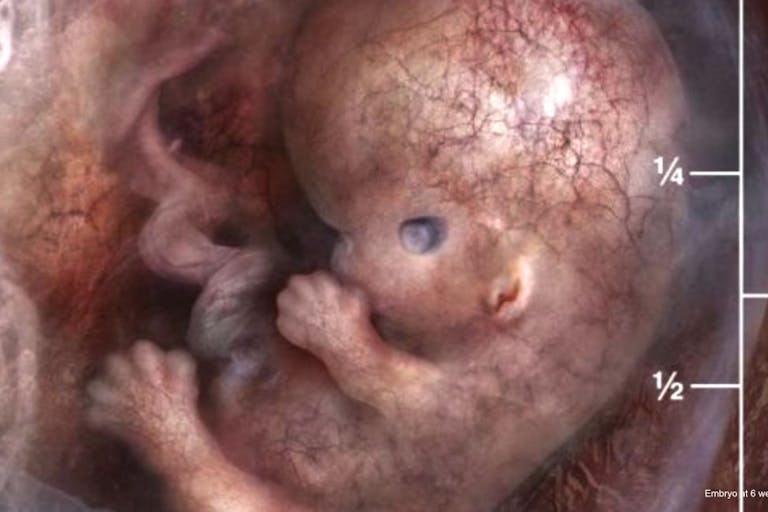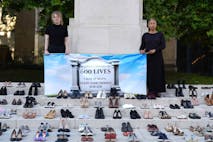
14th Texas county outlaws abortion and use of roads for ‘abortion trafficking’
Mark Lee Dickson
·
Nebraska lawmakers advance ‘Heartbeat Act’ protecting preborn children
A bill that would protect preborn children in Nebraska from abortion once a heartbeat can be detected, typically at six weeks gestation, has advanced.
LB 626, or the Nebraska Heartbeat Act, was introduced by Sen. Joni Albrecht in January. Thirty-three lawmakers voted to end debate on the bill, enough for them to overcome a potential filibuster. This is significant, as in February, Sen. Machaela Cavanaugh vowed to filibuster all bills unless LB 626 and a bill banning reproductive-related procedures on minors, are withdrawn.
“You cannot stop me. I will not be stopped,” she said, adding, “If this legislature collectively decides that legislating hate against children is our priority, then I am going to make it painful; painful for everyone. Because if you want to inflict pain upon our children, I am going to inflict pain upon this body. I have nothing, nothing but time, and I am going to use all of it.”
Now, with the vote to defeat a filibuster, LB 626 will head for a second debate.
Abortion advocates have recently taken to comparing preborn children to Tic Tacs, a tactic used by Senator Jen Day of Omaha. She claimed that at six weeks, there is not even a heart present, saying, “The sound you hear on an ultrasound is not a heartbeat.”
Article continues below
Dear Reader,
In 2026, Live Action is heading straight where the battle is fiercest: college campuses.
We have a bold initiative to establish 100 Live Action campus chapters within the next year, and your partnership will make it a success!
Your support today will help train and equip young leaders, bring Live Action’s educational content into academic environments, host on-campus events and debates, and empower students to challenge the pro-abortion status quo with truth and compassion.
Invest in pro-life grassroots outreach and cultural formation with your DOUBLED year-end gift!
This is demonstrably, scientifically false; the heart may not be a fully-formed four-chambered heart, but it is present and pumping blood throughout the body before six weeks gestation. This development is necessary for the preborn child to continue growing. And it’s an argument that didn’t sway Albrecht.

“This is about elective abortions,” she said. “I know every woman and every child deserves love. We can protect their lives.”
LB 626 includes exceptions, allowing for abortion in medical emergencies, and in cases of rape or incest. Earlier this week, Albrecht explained that her bill is specifically intended to end what she described as abortions by choice.
“I’m hoping we can change some hearts on the floor,” she told the Nebraska Examiner. “It’s about elective abortions. We want to stop that from happening — women who it’s inconvenient for them to have it, not wanting to have it. …. This is the right thing to do for the people.”
Live Action News is pro-life news and commentary from a pro-life perspective.
Contact editor@liveaction.org for questions, corrections, or if you are seeking permission to reprint any Live Action News content.
Guest Articles: To submit a guest article to Live Action News, email editor@liveaction.org with an attached Word document of 800-1000 words. Please also attach any photos relevant to your submission if applicable. If your submission is accepted for publication, you will be notified within three weeks. Guest articles are not compensated (see our Open License Agreement). Thank you for your interest in Live Action News!

Mark Lee Dickson
·
Pop Culture
Cassy Cooke
·
Activism
Angeline Tan
·
Human Rights
Bridget Sielicki
·
Analysis
Cassy Cooke
·
Analysis
Angeline Tan
·
Pop Culture
Cassy Cooke
·
International
Cassy Cooke
·
Analysis
Cassy Cooke
·
Analysis
Cassy Cooke
·
International
Cassy Cooke
·